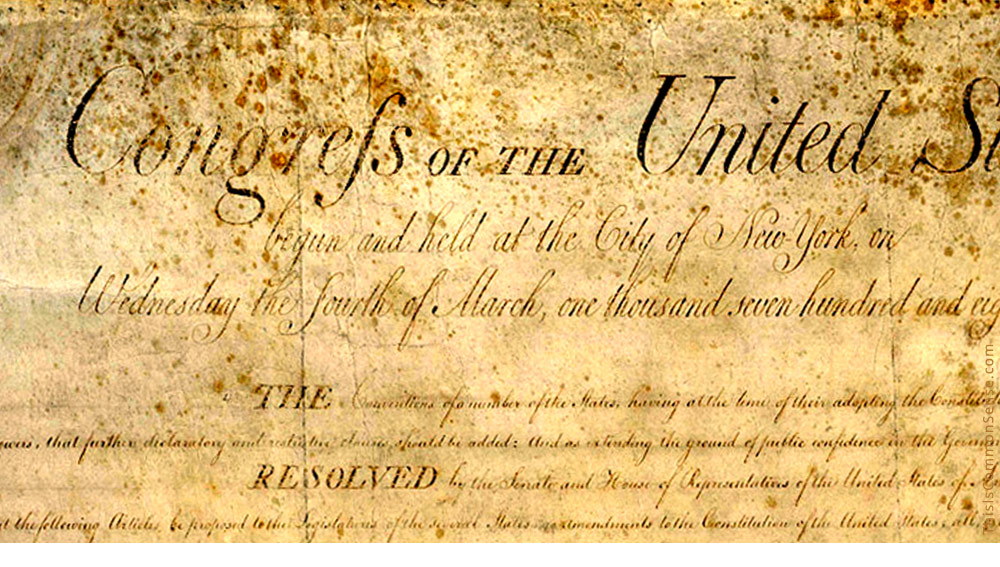We were taught in school that the first ten amendments to the Constitution make up the Bill of Rights. True enough.
But not completely true — as I pointed out at Townhall.
In 1789, Congress passed and sent to the states twelve constitutional amendments, called “articles.” Our current First Amendment was billed as Article the Third.
The first two of the original batch did not pass at that time: Article the First and Article the Second. That latter article, after more than two centuries of wandering around legislatures, was finally ratified by the necessary three-fourths of the states as the 27th Amendment to the Constitution. In 1992.*
As for the rejected Article the First, last Tuesday, Eugene M. LaVergne filed a motion, pro se, before a federal three-judge panel convened in the D.C. Circuit to hear his challenge to “the validity and Constitutionality of the 2010 Apportionment of the U.S. House of Representatives.” He and four other rabble-rousing New Jersey citizens are challenging the courts to acknowledge a surprising truth: the original Article the First was actually ratified.
On June 21, 1792, Kentucky’s legislature voted to ratify, making it the twelfth of fifteen states at that time to do so.
It’s a complicated story. One of the elements is a clerical error.
But rectifying this old mistake would have huge repercussions.
How huge? Currently the lower house of Congress has a mere 435 members. Were this amendment acknowledged, that number would soar to over 6,150 members.
And that would be a good thing.**
This is Common Sense. I’m Paul Jacob.
* Sadly, its sensible prohibition — “No law, varying the compensation for the services of the Senators and Representatives, shall take effect, until an election of representatives shall have intervened” — was immediately rendered toothless by the automatic cost of living salary adjustments congressmen had already provided themselves.
** Skeptical? Well, click here for a preview of more detailed arguments to come.


6 replies on “The First Shall Be Last”
Please keep us updated!
One Person cannot represent 850,000 people.
Expansion of the House would bring back accountability.
DRRIK — You are correct. It would also mean candidates not sold out to Big Business would have a chance of winning.
6,150 members? C‑SPAN would have a heck of a time broadcasting the SOTU address. A LOT more hands to shake/
I have much admiration for Paul Jacobs, but I think he is incorrect in his interpretation (I wish he ‑were- correct!). It seems the Amendment actually requires “that there shall not be less than two hundred Representatives, nor more than one Representative for every fifty thousand persons” — which would not ‑require- any increase from the currently 435. The original wording, and even the wording approved by the Senate, was much better.
There was also a “first” 13th amendment which was passed and ratified by the required number of states. It effectively banned lawyers from serving in congress.…